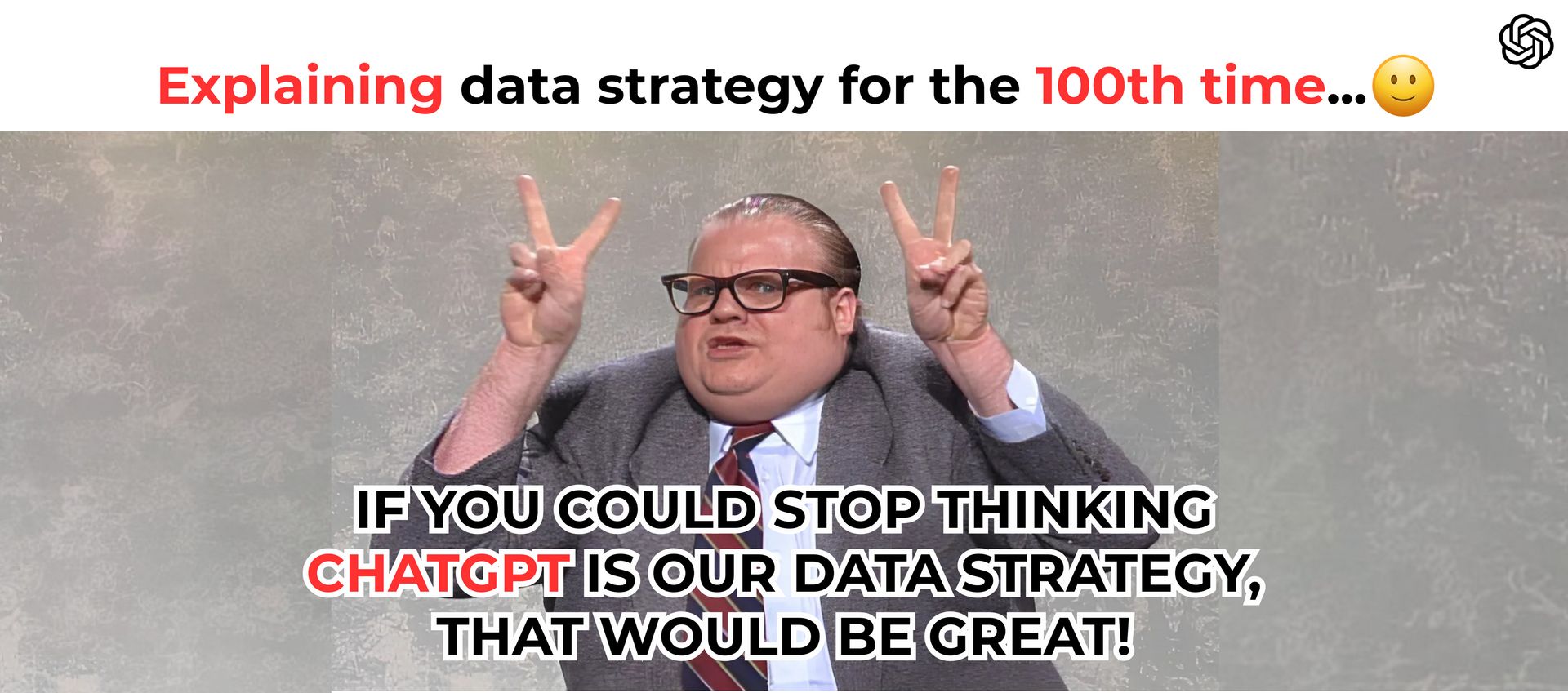- Daily Success Snacks
- Posts
- The Danger of Confusing ChatGPT With a Real Data Strategy!
The Danger of Confusing ChatGPT With a Real Data Strategy!
Why treating AI like a strategy is the fastest way to lose the data game!

Read time: 2.5 minutes
AI is everywhere right now. 78% of organizations say they’re using AI in at least one business function, up from 72% just months earlier and only 55% the year before (McKinsey & Company, 2025).
That’s explosive growth, and it proves how quickly leaders are embracing the AI wave.
But here’s the twist: adoption doesn’t equal impact. Running a chatbot, drafting emails, or generating reports is not the same as building a strategy that drives real decisions, growth, and trust.
The missing piece? Data. Clean, consistent, governed data that turns AI experiments into a competitive advantage.
What actually matters (and what to do instead):
Build a real data strategy: Create a roadmap that links business goals to data priorities, not random AI experiments.
Own your data quality: Audit regularly, fix duplicates, close gaps because poor inputs equal poor insights.
Define your sources: Centralize systems of record so everyone works off the same truth, not 10 versions of it.
Track lineage: Know where your data came from, how it changed, and who touched it... it’s the backbone of trust.
Use ChatGPT wisely: Let it speed up communication, not dictate business-critical decisions.
Key Takeaways:
A roadmap beats random AI experiments; so build a real data strategy.
Clean, accurate data is worth more than flashy tools.
Centralized sources and lineage tracking create trust in numbers.
ChatGPT is a helper, not a strategist; use it to support, not to lead.
👉 LIKE this if you agree data beats buzzwords.
👉 SUBSCRIBE now to stay sharp on data, AI, and strategy (no fluff).
👉 Follow Glenda Carnate for straight-shooting insights leaders actually need.
Instagram: @glendacarnate
LinkedIn: Glenda Carnate on LinkedIn
X (Twitter): @glendacarnate
👉 COMMENT: What’s the one habit you use to keep data clean and trustworthy?
👉 SHARE this with your team before they confuse ChatGPT with strategy.
Reply